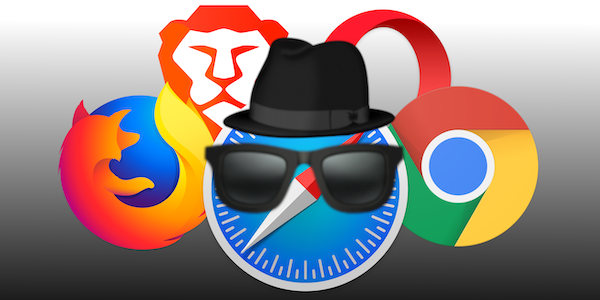This article explains how to download and install Firefox on a Mac.
- Firefox For Google Chrome For Mac Os
- Chrome Vs Safari On Mac
- Google Chrome Firefox Browser
- Firefox For Google Chrome For Macbook Pro
- If you are updating from a previous version of Firefox, see Update Firefox to the latest release.
Google Chrome and Firefox also stopped supporting Silverlight, Google terminated support for Silverlight in Chrome in September 2015, and Mozilla for Firefox in March 2017. Microsoft will continue to support Silverlight version 5 with updates and bugfixes until October 2021, after that it will stop and many websites will have to switch to HTML5. For Mac OS X 10.10 or later. This computer will no longer receive Google Chrome updates because Mac OS X 10.6 - 10.9 are no longer supported. This computer will no longer receive Google Chrome.
- Visit the Firefox download page in any browser (for example, Safari). It will automatically detect the platform and language on your computer and recommend the best version of Firefox for you.
- Click .
- Note: If you want to have a choice of the language for your Firefox installation, click the Download options and other languages link instead.
- Once the download has completed, the file (Firefox.dmg) may open by itself and pop open a Finder window containing the Firefox application. Drag the Firefox icon on top of the Applications folder in order to copy it there.
- Note: If you do not see this window, open the Firefox.dmg file that you downloaded.
- After dragging Firefox to the Applications folder, hold down the control key while clicking in the window and select Eject 'Firefox' from the menu.
Tip: You can add Firefox to your dock for easy access. Just open your Applications folder and drag Firefox to the dock.
Firefox is now ready for use. Just click on its icon in the dock or Applications folder to start it.
When you first start up Firefox, you will be warned that you downloaded Firefox from the Internet. Because you download Firefox from the official site, click .
Upon installation, Firefox will not be your default browser, which you'll be notified about. That means that when you open a link in your mail application, an Internet shortcut, or HTML document, it will not open in Firefox. If you want Firefox to do those things, click . If you're just trying out Firefox or simply do not wish to set Firefox as your default browser, click .
Choosing a secure and reliable web browser is often a difficult task. The hot topic is usually Chrome vs Firefox, however there is a host of popular browsers that you could use including Microsoft Edge, Opera, Firefox, and Chrome. In this article, we look specifically at Google Chrome and Mozilla Firefox.
Firefox For Google Chrome For Mac Os
Chrome and Firefox are two of the most popular web browsers available. They both have a large customer base and have an excellent array of features for web surfing. To properly discuss Chrome vs. Firefox, we analyse several different features including usability, performance, security, and privacy.
Firefox vs Chrome: Basic Information
| Information | Google Chrome | Mozilla Firefox |
| First Released | 2008 | 2002 |
| Owned By | Google LLC | Mozilla Corporation |
| Available On | Mac OS, Windows, Android, iOS | Mac OS, Windows, Android, iOS |
| Installer Size | 30.3MB | 350 KB |
The above table shows some basic information about these two Internet browsers. As you can see, Firefox is the older web browser, being release 6 years before Chrome. It is not the oldest, however – the original Internet Explorer browser from Microsoft was first released in 1995.
Both web browsers are relatively small and will not take up much space on your devices. In addition, you can use both Internet browsers on different devices including computers, smartphones, laptops, and tablets.
Firefox or Chrome: Features
Chrome Vs Safari On Mac
Basic features and utility of the browser are important. Can you install plugins and extensions? How much customization can you apply? What about capture features and mobile compatibility?
Chrome browser
Google has gone to town on the features of Chrome to make it the best browser. It has the most extensive plugin/extension library of any Internet browser. Also, the plugins integrate well with Google’s other services. There isn’t much scope for customization of Google Chrome, but it does have a PDF reader and an automatic translation feature.

Mozilla Firefox web browser
This browser has an extensive plugin library too although it is not as large as Google Chrome’s. You can find a myriad of different plugins to improve the utility of the browser. Also, Firefox has a capture feature for screenshots and a reading mode that is perfect for reading large pages of text.

Chrome or Firefox: Usability
Usability relates to the style and design of the web browser. It looks at features like tab management, navigation, and settings management.
Chrome browser
Google has created a highly usable Internet browser that most people are familiar with. It has a decent tab management system, although it does not have scrolling tabs like Firefox. As you open more tabs, they simply shrink is size – this can sometimes be difficult to use. It does, however, have great mobile usability.
Mozilla Firefox browser
This web browser is generally fantastic to use. It has an excellent design, particularly excelling at tab management. You can easily open new tabs, change their positioning, and even pin and mute tabs. The settings tab is also easy to operate and you can customize the browser without too much effort.
Google Chrome vs Firefox: Performance
Performance has a direct impact on our enjoyment when browsing the web. We want to use a web browser that encourages quick loading times. But it should also enable you to open new tabs quickly and use its various features without lag.
Google Chrome
This browser performs well on both mobile and desktop devices. However, it does have a relatively high RAM usage rate. It can sometimes be a little sluggish, especially when using multiple tabs. Also, there is no support for data-saving, and mobile devices with minimal processing power may struggle.
Mozilla Firefox
Like Chrome, Firefox is also pretty resource-hungry. It eats RAM on both desktop and mobile devices. However, like Chrome, it also is incredibly fast and performs well. There is not much to choose between these two fastest browsers in terms of raw performance. Firefox does have a slight mobile advantage as you can disable images to improve loading times.
Firefox vs Chrome: Security
When surfing the web, you want to be secure. This can be achieved in part by using high-quality antivirus software. However, the web browser you choose is also important. Both Chrome and Firefox browsers have various security features to protect you when accessing the Internet.
Chrome
Google Chrome Firefox Browser
You can use Chrome’s native pop-up blocker which is highly effective. Also, you can access a range of quality ad-blockers via the Chrome extension library. Moreover, Chrome has various useful security features like warning messages if you are trying to access a malicious site. It also uses Google Safe Browsing.

Firefox
This Internet browser has an automatic pop-up blocker – something highly useful for web browsing. However, it does not have an ad-blocker installed as default. You can easily install an ad-blocker from the plugin library, however. Firefox also benefits from Google’s safe browsing database which keeps a record of malicious sites and content.
Chrome vs Firefox: Privacy
Privacy is hugely important when using a web browser. You are opening yourself to a myriad of external connections. Also, you are often placing your personal data on the internet for others to potentially see. You must, therefore, consider privacy and look at what each browser has to offer.
Google Chrome browser
Google is well-known for having less-than-reputable privacy policies. As a company, Google actively collects user information. You would be startled to know just how much this corporation knows about you.
Chrome, unfortunately, suffers from this same trait. You can limit the amount of data collected, but it is difficult to delete information and truly protect your privacy. If you value your privacy, you may want to consider using Mozilla Firefox, or even other browsers that put privacy first like DuckDuckGo.
Mozilla Firefox browser
Mozilla is a non-profit organization. This means they do not rely on ad revenue and collecting customer data. As a result, Firefox has excellent privacy and it’s one of the best browsers privacy-wise. This is one of the browser’s major features. It has an extensive privacy policy detailing exactly how any personal data collected is used.
Also, it has various features allowing you to block different tracking tools. For example, you can block cookies, finger printers, crypto miners, and more.
Chrome vs. Firefox: Final thoughts
If you’re looking for the best browser with tons of plugins for each and any purpose, synchronization with Google account and your computer is powerful enough to support CPU consuming Chrome then go with the browser by Google.
If you need the fastest browser with better security and privacy options that is not resource hungry then stick with Mozilla Firefox browser.
We hope you have found this article useful. You should now have a clear idea of what each browser has to offer and who’s the winner in the Chrome vs Firefox battle. The reality is that both web browsers are highly usable. Your choice may come down to personal preference, and what features are most important for you in an Internet browser. Don’t forget to install the best antivirus software to keep your computer safe while browsing.
Related articles
Firefox For Google Chrome For Macbook Pro
- Top Google Chrome Extensions for Better Browsing
Google Chrome browser has become widely popular thanks to its high speed, elegant, minimalistic interface, and in-built…
- Android vs. iPhone
Lately, smartphone users are divided into two groups: Android supporters and iPhone worshipers. Not mentioning Windows phones,…